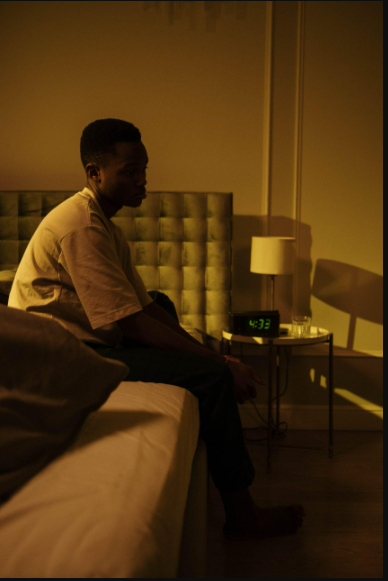
Anxiety disorders affect an estimated 40 million U.S. adults each year, yet fewer than 40 percent receive treatment.ⁱ When worry, tension, or panic begin to interfere with sleep, relationships, or productivity, getting help becomes essential. Two mainstream options—online therapy and medication—often come up in treatment discussions. Which works better? The answer depends on your symptoms, medical history, and personal preferences. This in‑depth guide examines the latest research, benefits, and drawbacks of each approach so you can pursue the most effective online anxiety treatment in Texas for your situation.
1. What Counts as “Online Therapy” for Anxiety?
“Online therapy” (teletherapy or telepsychology) refers to mental‑health counseling delivered via secure video, phone, or text platforms by licensed professionals. The most evidence‑based modalities for anxiety include:
2. Modern Anxiety Medications: A Quick Primer
Common prescriptions include:
-
SSRIs, such as escitalopram and sertraline, are first-line medications that raise serotonin availability.
-
SNRIs, such as duloxetine and venlafaxine, increase serotonin and norepinephrine.
-
Benzodiazepines, such as clonazepam and alprazolam, provide temporary relief from acute panic but include a dependence risk.
-
Buspirone is an anxiolytic that is neither sedative nor addictive.
Following a thorough virtual evaluation and regular follow-ups, online psychiatric practitioners, such as Polished Mind Psychiatry, are legally permitted to e-prescribe the majority of anxiety drugs.
3. How Effective Is Online Therapy? Research & Outcomes
-
Efficacy: According to a 2023 meta-analysis published in JAMA Psychiatry (26 RCTs, n = 3,606), digital cognitive behavioral therapy (CBT) was as effective as traditional in-person CBT in reducing generalized anxiety symptoms by 50%.
-
Adherence: Stanford researchers discovered that young individuals’ teletherapy completion rates were 84%, whereas office visit completion rates were just 65%.
-
Cost-benefit analysis showed that patients who received weekly online cognitive behavioral therapy experienced a 20% decrease in emergency room visits.
-
Conclusion: Online treatment has a strong clinical foundation and may improve participation by allowing for flexible scheduling and lowering stigma.
4. How Effective Is Medication? Research & Outcomes
SSRIs/SNRIs: Within 8–12 weeks, about 60–80% of patients report a significant improvement in symptoms.
Relapse Prevention: Compared to medicine alone, long-term SSRI usage plus therapy reduces relapse risk by 70% (British Journal of Psychiatry, 2022).
Time to Relief: SSRIs take 4–6 weeks to take effect but are safer for long-term use; benzodiazepines act in 30 minutes but have dependence hazards.
Conclusion: Although pharmacotherapy can provide effective symptom alleviation, particularly for moderate-to-severe or physiologically driven anxiety, it must be closely watched for adverse effects.
5. Side‑by‑Side Comparison: Pros and Cons
6. Combining Online Therapy and Medication: The Integrated Model
Research continuously demonstrates that combo therapy produces better results.³ Acute symptoms can be reduced with medication, enabling patients to participate completely in therapy. Therapy also gives patients abilities that go beyond medicine.
Polished Mind Psychiatry does the following:
-
Perform a 360-degree virtual evaluation (lifestyle, psychological, and medical).
-
Create a two-pronged strategy that includes teletherapy for cognitive/behavioral restructuring and medicine for biological problems.
-
Review progress via secure video every 4-6 weeks, modifying therapy frequency or dosage as necessary.
7. Key Questions to Ask Yourself—and Your Provider
-
Severity: Do crippling worry or panic attacks interfere with day-to-day functioning?
-
History: Have you ever attempted medicine or therapy? If so, what was successful?
-
Time Commitment: Are you able to dedicate yourself to daily medicine or weekly sessions?
-
How do you feel about possible physical impacts versus screen weariness in terms of side-effect tolerance?
-
Personal Preference: Do you desire rapid pharmacological alleviation, the acquisition of coping abilities, or both?
8. Why Personalization Matters at Polished Mind Psychiatry
Receive Personalized Care for the Best Anxiety Treatment
We at Polished Mind Psychiatry recognize that there is no one-size-fits-all approach to anxiety. Together, you and our online anxiety counselor will create a personalized strategy that may involve CBT, DBT, medication, or an integrated approach. As a reputable provider of Texas anxiety treatment facilities (licensed in New York), we offer professional online therapy with:
-
Evidence-based protocols include mindfulness training, exposure treatment, and SSRIs/SNRIs.
-
Digital mood trackers are synchronized with physician dashboards for real-time monitoring.
-
Sessions with a family or partner: An optional option for comprehensive rehabilitation.
-
Clear Pricing & Insurance Support: We provide upfront cash prices and accept the majority of major policies.
9. Next Steps: Crafting Your Custom Anxiety Treatment Plan
-
Schedule a Virtual Consultation – Secure intake forms and insurance verification.
-
Complete a Digital Assessment – PHQ‑9, GAD‑7, and medical questionnaires.
-
Meet Your Provider – Discuss findings, preference, and set measurable goals.
-
Begin Care – Therapy sessions, medication shipment, or both.
-
Review & Adjust – Data‑driven tweaks ensure optimal progress.
Final Thoughts
Both medicine and online treatment are essential for managing anxiety. Your lifestyle, treatment objectives, and symptom profile will determine which option—or combination—is best for you. You can create a customized, evidence-based online anxiety treatment plan with Polished Mind Psychiatry, a skilled, telehealth-savvy team, that will help you regain your composure and self-assurance.